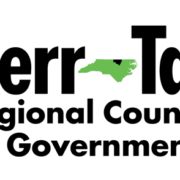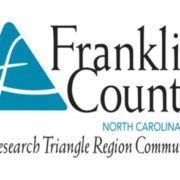Imagine driving to the train station in downtown Henderson to begin your daily commute to your job in the Triangle. You hop on the commuter rail, which whizzes past the stopped traffic along U.S. 1 and Capital Boulevard as you approach your destination.
For regional planner Sam Boswell, that is no longer a pie-in-the-sky notion, but what could be reality in, say, another 10 years or so.
Boswell is a regional planner who concentrates on transportation for the Kerr Tar COG. He told WIZS’s Bill Harris Wednesday that he sees his job as a balancing act to ensure that the COG provides and promotes projects for all parts of the region, not just the ones that are experiencing the burgeoning growth right now.
The Kerr Tar COG, which serves Vance, Granville, Warren, Franklin and Person counties, stays up-to-date on NC DOT projects, such as the S-Line Rail Project slated to run through Henderson and points north, participation in a regional greenway project and an alternative to the gas tax, which helps to fund transportation projects and maintenance.
Individuals have an opportunity to ask questions, voice concerns and hear updates from the NC DOT as it hosts an open house during the week of July 25-29. Folks can drop in to Div. 5 offices, 2612 N. Duke St., in Durham any time between 8 a.m. and 5 p.m. during that week, Boswell said.
Part of his job, he said, is to help municipalities and counties with projects and to explore ways to have a regional effect, “a grouping of services to benefit the region.” That sometimes proves difficult, he said, explaining that municipalities may not reap a direct benefit from a project that is not geographically nearby.
Take the S-Line rail project, for example. This project will connect Raleigh and Richmond and completing the Southeast rail corridor that then can feed into the much-used Northeast rail corridor.
“It’s a big deal, for sure,” Boswell said, adding that there’s a great deal of excitement around the project.
In addition to reducing commute times and the number of vehicles on the road, a passenger rail brings with it other benefits. “If you’ve got a train stop, you’ve got people leaving and people coming in,” he explained. That means riders can choose to get off at the Henderson or Norlina stations, “put a break in their trip and visit local businesses,” spending money and adding to the local economies.
There’s another exciting possibility for transportation of a slower nature – bicycle and pedestrian traffic along a greenway. The East Coast Greenway feasibility study is underway now. It’s mostly a biking trail, but there’s a walking route as well, Boswell said. The greenway extends through 400 cities from Florida to Maine, sort of like the Appalachian Trail, and the American Tobacco Trail in Durham makes up 27 or so miles of the greenway trail, he added.
“We’re working with a team of consultants to see how we can make that happen in the Kerr Tar region,” he said. Right now, there’s a section between Butner and Oxford in Granville County, but the COG is waiting to hear from another grant opportunity to continue the study on a bigger scale – building a greenway trail from Oxford north to Virginia and from Oxford to Henderson.
These projects, and others on the horizon, signal change for the area. Boswell said, like it or not, as the Triangle continues to expand, it’s important to keep the transportation system updated – even trying to stay ahead of the growth that is surely coming.
In addition to new projects like the rail line, it’s also critical to keep existing roads in good repair and able to handle the increasing volume of traffic.
“People are going to start moving in here,” Boswell said of the Kerr Tar region. What planners have to try to figure out is how to make adjustments to the infrastructure to accommodate those people.
More people means more vehicles using the roads, but not necessarily producing more revenue through the gas sales tax. More hybrid and electric vehicles means less money spent on gas, he explained. So the DOT is re-examining an idea previously studied that would generate revenue based on the number of miles a driver drives as opposed to how much gas he pumps into his tank.
“Right now, money for construction projects comes from the gas tax,” Boswell explained. As vehicles become more fuel efficient or not dependent at all on gas, drivers “aren’t paying their fair share…and the burden falls on some drivers more than others.”
DOT looked at it a few years ago.
Is it more equitable or sustainable to pay per mile than per gallon of gasoline? That’s one of the questions being considered in the study, he said.
The study has slots for 450 participants throughout the state, which will run from the end of July through October. Participants will get a device of some sort that will connect to the vehicle’s odometer or otherwise track the miles driven.
CLICK PLAY!



